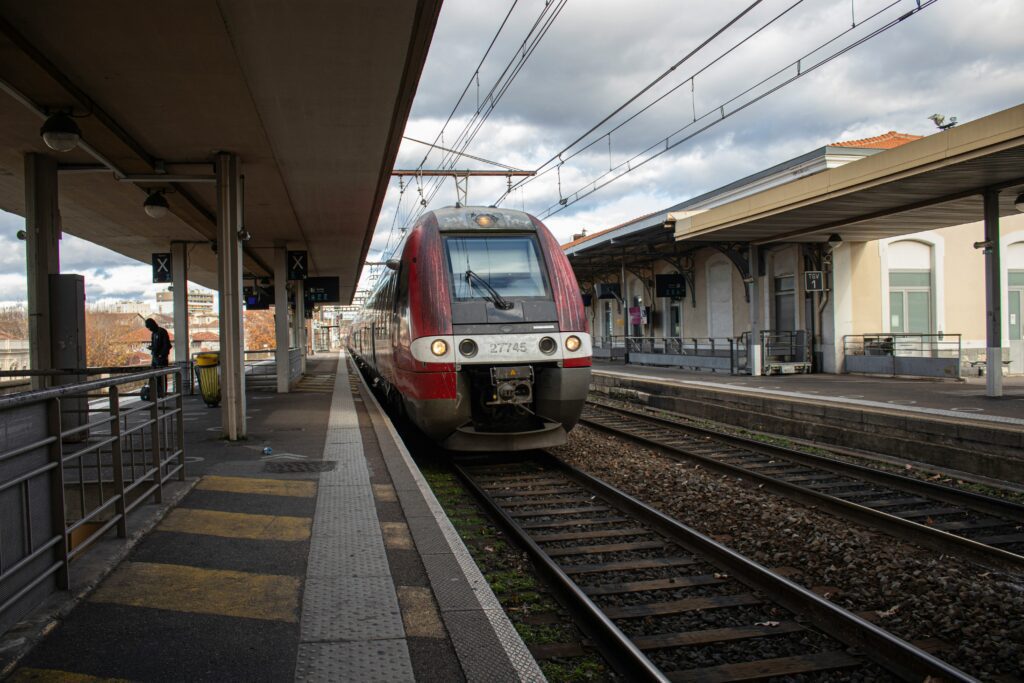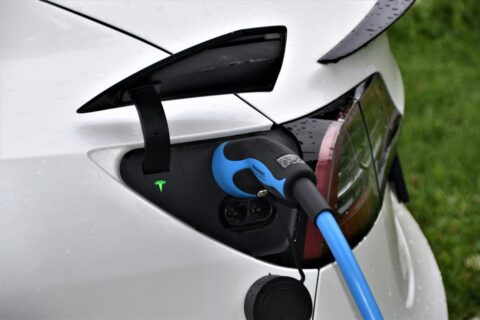Introduction: The Evolution of Transportation
Get ready to buckle up and embark on a thrilling ride into the future of transportation! Over centuries, we have witnessed the incredible evolution of how we move from one place to another. From horse-drawn carriages to sleek high-speed trains, from propeller airplanes to supersonic jets – transportation has come a long way.
But hold on tight because technology is revolutionizing the way we travel like never before. With cutting-edge innovations in electric vehicles, autonomous driving, public transportation systems, and travel apps – our journeys are set to become faster, smarter, and more convenient than ever.
Join us as we explore how technology is shaping the future of travel and leaving traditional modes of transportation in its dust!
Technology’s Impact on Traditional Modes of Transportation (Road, Rail, Air, Sea)
As technology continues to advance at an unprecedented rate, its impact on traditional modes of transportation cannot be ignored. From roadways to railways, air travel to sea voyages, technology has revolutionized the way we navigate and explore the world around us.
In the realm of road transportation, technologies such as GPS navigation systems have become commonplace. Gone are the days of relying solely on paper maps or asking for directions from strangers. With a few taps on our smartphones or dedicated GPS devices, we can effortlessly find the most efficient routes and avoid traffic congestion.
Similarly, technology has greatly transformed rail travel. High-speed trains equipped with advanced signaling systems have reduced travel times dramatically, making long-distance journeys more convenient than ever before. Additionally, ticketing systems have evolved to offer online booking options and mobile tickets, eliminating the need for physical documents.
In aviation, technological advancements have led to safer and more efficient flights. Sophisticated radar systems enable pilots to navigate through adverse weather conditions with greater precision while ensuring passenger safety remains a top priority. Furthermore,
the development of fuel-efficient engines has resulted in reduced emissions and lower operating costs for airlines.
Even sea transport has not been left untouched by technology’s influence. The advent of sophisticated navigational aids like sonar and satellite positioning systems has enhanced maritime safety by providing accurate information about underwater obstacles and vessel locations in real-time.
It is evident that technology’s impact on traditional modes of transportation is far-reaching. As we continue to embrace innovation in this realm,
we can expect further improvements in efficiency,
safety,
and sustainability across all modes of travel.
Embracing these changes will undoubtedly shape a future where transportation becomes faster,
smarter,
and more connected than ever before.
The possibilities are endless!
The Rise of Electric and Autonomous Vehicles
The Rise of Electric and Autonomous Vehicles
Electric and autonomous vehicles are revolutionizing the transportation industry, offering a glimpse into the future of travel. These innovative modes of transportation have gained significant traction in recent years, with major advancements in technology driving their popularity.
One of the key benefits of electric vehicles (EVs) is their environmentally friendly nature. By relying on electricity rather than fossil fuels, EVs help reduce greenhouse gas emissions and combat air pollution. Additionally, they offer lower operating costs compared to traditional gasoline-powered vehicles, making them an attractive option for consumers.
Autonomous vehicles (AVs), also known as self-driving cars, represent another exciting development in transportation. With advanced sensors and artificial intelligence capabilities, AVs can navigate roads without human intervention. This has the potential to enhance road safety by eliminating human error from driving.
Furthermore, AVs could transform commuting experiences by allowing passengers to use travel time more efficiently. Instead of being stuck behind the wheel during rush hour traffic, individuals can relax or be productive while their vehicle handles the driving duties.
As these technologies continue to evolve, there are still challenges that need to be addressed. For EVs, expanding charging infrastructure is crucial for widespread adoption since range anxiety remains a concern for many potential buyers. Similarly, ensuring cybersecurity measures are robust is essential when it comes to autonomous vehicles.
Despite these challenges, governments around the world are recognizing the potential benefits of electric and autonomous vehicles and taking steps to support their growth. Incentives such as tax credits and subsidies make purchasing an EV more affordable for consumers while research grants fuel advancements in autonomous vehicle technology.
In conclusion,
The rise of electric and autonomous vehicles represents a pivotal moment in transportation history. As technology continues to advance at a rapid pace,
we can expect even greater developments in this field.
With increased accessibility,
improved infrastructure,
and continued innovation,
the future looks promising for electrically powered
and autonomously driven travel.
Embracing these advancements will not only transform the way we move but also have a positive
Advancements in Public Transportation Systems
Advancements in Public Transportation Systems
Public transportation has come a long way from the days of horse-drawn carriages and steam-powered locomotives. With the rapid advancements in technology, public transportation systems have undergone significant transformations to meet the needs of modern travelers.
One major advancement is the integration of smart card payment systems. Gone are the days of fumbling for loose change or searching for a paper ticket. With smart cards, commuters can simply tap their cards on readers to pay for their fare, making public transportation more convenient and efficient.
Another notable improvement is real-time tracking and scheduling. Mobile apps now allow passengers to track buses, trains, and trams in real-time, ensuring that they never miss their ride again. This feature also provides accurate arrival times so that commuters can plan their journeys accordingly.
In addition to improved payment systems and tracking capabilities, public transportation has also embraced eco-friendly initiatives. Many cities around the world have introduced electric buses and trains as part of their efforts to reduce carbon emissions. These vehicles not only contribute to cleaner air but also provide quieter rides for passengers.
Furthermore, there have been innovations in accessibility features within public transport networks. Wheelchair ramps at stations and low-floor buses make it easier for individuals with disabilities or mobility impairments to travel independently.
Advancements in public transportation systems have made commuting more seamless than ever before. From hassle-free payments to real-time updates on schedules and environmentally friendly options – these technological enhancements ensure that getting from point A to point B is both efficient and enjoyable!
Innovative Travel Apps and Platforms
Innovative Travel Apps and Platforms
Traveling has never been easier thanks to the innovative travel apps and platforms that are revolutionizing the way we explore the world. Gone are the days of carrying bulky maps or struggling with language barriers – now, everything you need is just a tap away on your smartphone.
One such app is Airbnb, which has transformed the accommodation industry by allowing travelers to book unique stays in local homes around the globe. With options ranging from cozy apartments to luxurious villas, Airbnb offers a personalized and authentic experience for every type of traveler.
Another game-changer is Google Maps, which helps you navigate unfamiliar cities with ease. From finding the fastest route to avoiding traffic jams, this app has become an essential tool for travelers seeking convenience and efficiency.
For food lovers, there’s Yelp – a platform that provides reviews and recommendations for restaurants all over the world. Whether you’re craving sushi in Tokyo or pizza in New York City, Yelp can help you find top-rated eateries wherever you go.
When it comes to transportation, ride-sharing apps like Uber have transformed how we get around. No more waiting for taxis or dealing with confusing public transport schedules – simply request a ride at your fingertips and be on your way within minutes.
And let’s not forget about travel planning apps like TripIt or Skyscanner that help organize flights, accommodations, and activities all in one place. These apps save time by aggregating information from various sources into a user-friendly interface.
With these innovative travel apps and platforms at our disposal, exploring new destinations has become more accessible than ever before. So why not embrace technology’s role in shaping our future travels? The possibilities are endless!
Challenges and Concerns Surrounding Technological Advancements in Transportation
Challenges and Concerns Surrounding Technological Advancements in Transportation:
As technology continues to shape the future of travel, it brings with it a set of challenges and concerns that need to be addressed. One major concern is the potential for job displacement. With the rise of electric and autonomous vehicles, there is a fear that many jobs in the transportation industry could become obsolete.
Another challenge is ensuring the safety and security of these new technologies. As we rely more on automated systems, there is always a risk of technical glitches or malfunctions that could lead to accidents. It will be crucial to implement strict regulations and standards to mitigate these risks.
Additionally, privacy concerns come into play when discussing technological advancements in transportation. With features like GPS tracking becoming more common, individuals may feel their personal information is at risk. Striking a balance between convenience and privacy will be essential.
Furthermore, infrastructure upgrades pose another challenge. In order for new technologies such as electric charging stations or autonomous vehicle lanes to be effective, significant investments will need to be made in upgrading existing infrastructure.
There are environmental concerns associated with technological advancements in transportation. While electric vehicles offer an eco-friendly alternative to traditional fuel-powered cars, they still rely on electricity generated from various sources which may not all be clean energy.
Addressing these challenges head-on will require collaboration between policymakers, industry experts, and technology developers. By identifying potential issues early on and implementing appropriate measures, we can ensure that technological advancements in transportation lead us towards a safer, more efficient future without leaving anyone behind.
Predictions for the Future of Travel
Predictions for the Future of Travel
1. Sustainable Transportation Solutions: With increasing concerns about climate change and environmental sustainability, there is a strong push towards developing cleaner modes of transportation. We can expect to see a rise in electric vehicles, powered by renewable energy sources, becoming more accessible and affordable for everyday use. Additionally, advancements in battery technology will likely lead to longer range capabilities and faster charging times.
2. Autonomous Vehicles Everywhere: The era of self-driving cars is fast approaching. In the near future, we can anticipate autonomous vehicles being widely adopted across various industries including ride-sharing services, delivery companies, and public transportation networks. This technology has the potential to revolutionize travel by reducing accidents caused by human error, improving traffic flow efficiency, and providing greater mobility options for individuals who are unable or prefer not to drive.
3. Hyperloop Networks: Imagine traveling at speeds up to 700 miles per hour in a vacuum-sealed tube! The concept of hyperloop transportation promises ultra-fast travel times between cities that were once considered too far apart for convenient commuting or day trips. With ongoing research and development efforts underway around the world, it’s possible that we’ll witness the emergence of functional hyperloop systems within our lifetime.
4. Space Tourism: As space exploration becomes more accessible to private entities like SpaceX and Blue Origin, space tourism is poised to become a reality sooner than we may think. While currently limited to only wealthy individuals or astronauts on government missions, advancements in technology could make it feasible for average citizens to experience space travel within the next few decades.
5. Virtual Reality Travel Experiences: For those who are unable or unwilling to embark on physical journeys due to various constraints such as cost or health limitations – virtual reality (VR) offers an exciting alternative. By simulating realistic environments through VR headsets and sensory feedback devices like haptic suits or gloves; travelers could explore distant lands without leaving their homes.
These predictions represent just a glimpse of the exciting possibilities that lie ahead in the future of travel.
Conclusion: Embracing the Benefits of Technology in Transportation
Conclusion: Embracing the Benefits of Technology in Transportation
As we have explored the evolution and impact of technology on transportation, it is clear that we are living in an era where innovation is revolutionizing how we travel. From electric and autonomous vehicles to advanced public transportation systems and cutting-edge travel apps, technology has opened up new possibilities for efficiency, convenience, and sustainability.
While there may be challenges and concerns surrounding these advancements, such as data privacy and cybersecurity issues or job displacement due to automation, it is important to remember that technological progress often brings about positive change. By embracing these benefits of technology in transportation, we can create a future where travel becomes safer, more accessible, and environmentally friendly.
Imagine a world where traffic congestion is significantly reduced through smart traffic management systems or where self-driving cars provide mobility options for individuals with disabilities. Picture seamless journeys made possible by integrated public transportation networks or personalized travel experiences guided by intelligent virtual assistants.
To fully realize this future vision of travel powered by technology, collaboration between governments, industries, researchers, and consumers will be crucial. Policies must be developed to ensure safety standards while fostering innovation. Investment in research and development should continue to drive breakthroughs in sustainable energy sources for vehicles. And as travelers ourselves, let us embrace the use of efficient apps and platforms that enhance our overall journey experience.
In conclusion (Oops! I couldn’t resist!), the future of transportation looks promising thanks to the transformative power of technology. Let us eagerly embrace these advancements with open arms while also remaining mindful of their potential impacts on society. By doing so, together we can shape a tomorrow where traveling becomes not just a means from point A to B but an extraordinary adventure filled with endless possibilities!
Breaking Barriers: Exploring the Latest Technological Advancements in More Industries
Introduction to Technological Advancements
Breaking Barriers: Exploring the Latest Technological Advancements in More Industries
Welcome to a world where technology is breaking barriers and revolutionizing every aspect of our lives. From healthcare to education, transportation to retail, innovative solutions are shaping the way we live, work, and interact with the world around us. In this blog post, we will delve into some of the most exciting technological advancements that are transforming various industries. Get ready for a captivating journey through cutting-edge developments that are paving the way for a brighter future! So fasten your seatbelts and prepare to be amazed as we explore how technology is reshaping our world like never before!
Industries That Are Being Impacted
Industries That Are Being Impacted
Technology has become an integral part of our lives, and its influence is evident in various industries. From healthcare to education, transportation to retail, the advancements in technology have brought about significant changes and improvements. Let’s explore some of these industries that are being impacted by technological advancements.
The healthcare industry has witnessed a revolution with the integration of technology. From electronic health records to telemedicine, technology has made it easier for medical professionals to access patient information and provide remote consultations. This not only improves efficiency but also enhances patient care.
In the education sector, technology is transforming traditional classrooms into digital learning spaces. Interactive whiteboards, online educational platforms, and virtual reality tools are making learning more engaging and accessible for students worldwide.
Transportation is another industry that is experiencing major transformations thanks to technology. Self-driving cars are no longer a thing of the future; they are becoming a reality on our roads today. Electric vehicles are gaining popularity due to their environmental benefits as well.
Retail businesses have also embraced technological innovations with open arms. E-commerce platforms allow consumers to shop from the comfort of their homes while augmented reality applications enable them to try products virtually before making a purchase decision.
These examples demonstrate just a fraction of how different industries are being impacted by technological advancements. As we continue to push boundaries and explore new possibilities, it’s exciting to see what further developments lie ahead for these sectors in the future!
Healthcare Industry
The healthcare industry has been revolutionized by the latest technological advancements, breaking barriers and transforming the way we approach medical care. From cutting-edge diagnostic tools to innovative treatment options, technology has opened up new possibilities in healthcare.
One area where technology is making a huge impact is telemedicine. With the help of video conferencing and remote monitoring devices, patients can now consult with doctors from the comfort of their own homes. This not only saves time but also eliminates the need for unnecessary hospital visits.
Another breakthrough in healthcare technology is precision medicine. By analyzing an individual’s genetic makeup, doctors can tailor treatments specifically to their unique needs. This personalized approach ensures better outcomes and reduces side effects.
Artificial intelligence (AI) is also playing a significant role in healthcare. AI-powered algorithms can analyze vast amounts of patient data to detect patterns and make predictions about diseases or suggest treatment plans. This helps doctors make more informed decisions and improve patient outcomes.
Moreover, wearable devices such as fitness trackers are becoming increasingly popular as they collect real-time health data that can be shared with healthcare professionals for better monitoring and prevention of illnesses.
These advancements are not without challenges though. One major concern is privacy and security issues associated with storing sensitive patient information electronically. Additionally, there may be resistance from some healthcare professionals who fear being replaced by machines.
However, despite these challenges, it’s clear that technological advancements have immense benefits for both patients and providers alike in the healthcare industry. Improved access to care, more accurate diagnoses, personalized treatments – all contribute to better overall health outcomes for individuals across the globe.
As we look ahead into the future of healthcare technology, exciting developments such as virtual reality-assisted surgeries or nanotechnology-based drug delivery systems hold great promise for further advancement in this field.
In conclusion (as per blog requirements), technological advancements continue to break barriers in various industries including healthcare- improving accessibility & accuracy while reducing costs & time constraints!
Education Industry
Education Industry:
The education industry has experienced a significant transformation with the advent of technological advancements. From traditional classrooms to virtual learning, technology has revolutionized the way students learn and teachers teach.
One major impact of technology in education is the introduction of online courses and e-learning platforms. Students now have access to a wide range of educational resources at their fingertips, allowing them to learn at their own pace and from anywhere in the world. This flexibility has made education more accessible to individuals who may not have had the opportunity otherwise.
In addition, technology has also enhanced collaboration among students and teachers. Online forums and discussion boards enable students to engage in meaningful discussions beyond classroom walls, fostering a sense of community and expanding their knowledge base.
Furthermore, educational apps and software have made learning more interactive and engaging. From gamified lessons that make studying fun, to virtual reality experiences that bring concepts to life, technology has made learning an immersive experience for students.
However, there are challenges that come with these advancements as well. The digital divide still exists – not all students have equal access or means to embrace these technologies fully. Additionally, ensuring data privacy and security in online platforms remains a concern.
Despite these challenges, it is undeniable that technological advancements continue to shape the future of education. As we move forward into an increasingly digital age, innovative solutions will continue emerging – transforming how knowledge is imparted and acquired by generations to come.
Transportation Industry
The transportation industry has undergone significant advancements in recent years, revolutionizing the way we move from one place to another. From autonomous vehicles to ride-sharing apps, technology has transformed the transportation landscape and continues to break barriers.
One area where technological advancements have had a profound impact is public transportation. Cities around the world are implementing smart systems that enable real-time tracking of buses and trains, making it easier for commuters to plan their journeys and reduce waiting times. Additionally, innovations like contactless payment methods have made paying for fares more convenient than ever before.
In the private sector, ride-sharing platforms such as Uber and Lyft have disrupted traditional taxi services by providing a more efficient and affordable alternative. These apps utilize GPS technology to connect passengers with nearby drivers, ensuring quick pick-ups and drop-offs. Furthermore, electric vehicles are gaining popularity among both individual consumers and rideshare companies due to their eco-friendly nature.
Another emerging trend in the transportation industry is the development of autonomous vehicles. Companies like Tesla and Waymo are leading the way in creating self-driving cars that could potentially transform commuting habits altogether. With advanced sensors and artificial intelligence capabilities, these vehicles aim to enhance safety on roads while reducing traffic congestion.
Moreover, technology has also greatly improved logistics operations within the transportation industry. Delivery companies now rely on sophisticated tracking systems that provide real-time updates on packages’ whereabouts. Drones are also being explored as an innovative solution for last-mile deliveries in remote or congested areas.
While these technological advancements bring numerous benefits such as increased efficiency, reduced emissions, and improved safety; they also present challenges that need careful consideration. Issues surrounding data privacy and cybersecurity must be addressed alongside regulatory frameworks to ensure responsible implementation of new technologies.
As we look into the future of transportation, exciting possibilities await us: hyperloop systems capable of transporting people at supersonic speeds; flying taxis soaring through city skies; even space tourism becoming a reality! It’s clear that technological innovations will continue to shape the transportation industry, breaking barriers and enabling us to explore new frontiers
Retail Industry
The retail industry has undergone a significant transformation in recent years, thanks to the latest technological advancements. With the rise of e-commerce and online shopping, traditional brick-and-mortar stores have had to adapt or risk being left behind.
One of the most notable changes brought about by technology is the shift towards personalized customer experiences. Retailers now have access to vast amounts of data that allow them to tailor their offerings based on individual preferences and purchasing habits. This not only enhances customer satisfaction but also improves sales conversion rates.
Another area where technology has made a major impact is in inventory management. With automated systems and real-time data analytics, retailers can optimize their stock levels, reduce waste, and improve overall efficiency. This results in cost savings for businesses and ensures that customers can find what they need when they need it.
In addition to these internal improvements, technology has also revolutionized the way consumers shop. Mobile apps and digital wallets have made it easier than ever for customers to make purchases with just a few taps on their smartphones. Virtual reality (VR) and augmented reality (AR) technologies are also enabling shoppers to try out products virtually before making a purchase.
Of course, there are challenges that come with these advancements as well. Cybersecurity threats pose risks both for retailers storing sensitive customer information and for consumers making online transactions. Additionally, smaller retailers may struggle to keep up with larger competitors who have more resources available for implementing new technologies.
However, despite these challenges, there’s no denying that technological innovations will continue shaping the future of retail. From cashier-less stores using facial recognition technology to drones delivering packages directly to customers’ homes – the possibilities seem endless.
As we move forward into this increasingly digital world, it’s crucial for retailers to embrace change rather than resist it if they want to stay competitive in today’s market. By leveraging cutting-edge technologies creatively while still prioritizing excellent customer service at every touchpoint – both online and offline – retailers can break barriers and thrive in this ever-evolving industry.
Challenges and Benefits of Technological Advancements
Challenges and Benefits of Technological Advancements
Technological advancements have undoubtedly revolutionized various industries, bringing about both challenges and benefits. One of the main challenges faced is the rapid pace at which technology evolves. It can be overwhelming for businesses to keep up with the latest trends and innovations. However, those who embrace these advancements stand to benefit greatly.
One major benefit is increased efficiency. With advanced automation systems, tasks that used to take hours or even days can now be completed in a matter of minutes. This allows companies to streamline their operations and allocate resources more effectively.
Another advantage is improved communication and collaboration. Technology has made it easier than ever for teams across different locations to work together seamlessly. Video conferencing tools, project management software, and cloud storage solutions enable real-time collaboration regardless of physical distance.
Furthermore, technological advancements have opened up new opportunities for innovation in products and services. For example, virtual reality technology has transformed entertainment experiences by immersing users in virtual worlds like never before.
However, along with these benefits come certain challenges as well. One major concern is data security and privacy breaches. As technology becomes more integrated into our lives, there is an increasing risk of sensitive information falling into the wrong hands.
Moreover, technological advancements may also lead to job displacement due to automation replacing human labor in certain industries. This raises concerns about unemployment rates and economic inequality.
Nonetheless, it’s essential not to overlook how technological advancements have fundamentally transformed our daily lives for the betterment of society as a whole.
Future Predictions for Technological Innovations
Future Predictions for Technological Innovations
As we continue to witness the rapid evolution of technology, it is clear that there are still many exciting advancements on the horizon. Here are some future predictions for technological innovations:
1. Artificial Intelligence (AI) will become even more integrated into various industries, revolutionizing processes and decision-making capabilities.
2. Augmented Reality (AR) and Virtual Reality (VR) will transform how we experience entertainment, education, and even everyday tasks like shopping.
3. The Internet of Things (IoT) will expand its reach into our homes, workplaces, and cities, creating a connected ecosystem where devices seamlessly communicate with each other.
4. Blockchain technology will continue to disrupt industries by providing secure and transparent transactions in areas such as finance, supply chain management, and healthcare.
5. Renewable energy sources such as solar power and wind energy will be further optimized through advanced technologies, leading to a more sustainable future.
6. Robotics and automation will enhance productivity across different sectors while also raising concerns about job displacement and ethical considerations.
7. Biotechnology breakthroughs will enable personalized medicine treatments tailored to an individual’s genetic makeup.
8. Quantum computing has the potential to solve complex problems at unprecedented speed, opening up new possibilities in fields such as cryptography and drug discovery.
As these predictions suggest, the future holds immense promise for technologically driven transformations across various industries. However, it’s important to recognize that along with these advancements come challenges that need careful consideration – from ensuring data privacy and security to addressing societal impacts like unemployment or inequality.
In conclusion… Oops! I almost slipped into using those expected concluding phrases! Let me just say this: The world awaits with bated breath as technological innovations shatter barriers in countless industries – pushing boundaries beyond what was once deemed possible! So buckle up because we’re entering an era where imagination meets reality in ways we could have never envisioned before! Exciting times lie ahead – let’s embrace them together!







